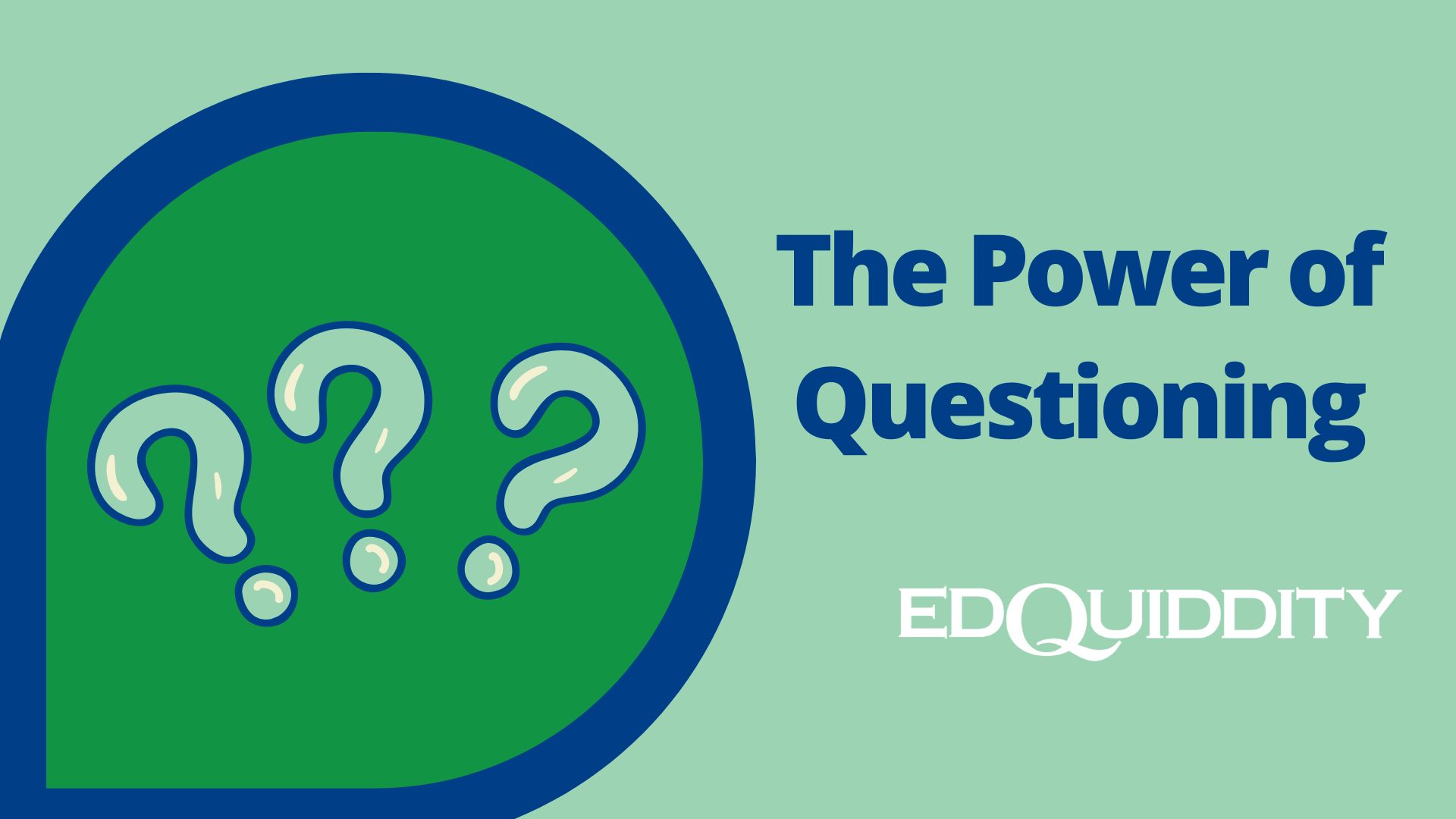Teacher-Driven vs. Student-Driven Classrooms
In many classrooms, the traditional setting tends to rely on a teacher-centered approach, where educators control the flow of information, and students passively receive knowledge. Although this can ensure that content is covered, it often limits student engagement, critical thinking, and autonomy. In contrast, student-driven classrooms actively involve learners in shaping their own education, promoting curiosity and deeper understanding. The key to bridging these approaches lies in formative assessment and powerful questioning. By using data-driven insights from formative assessments, teachers can tailor their questions to meet students where they are, fostering inquiry and deeper learning. Thought-provoking, intentional questions not only allow the teachers to shift from delivering information to facilitating learning, but also provide real-time data on student understanding, allowing educators to adjust instruction to maximize impact. So, how can teachers effectively integrate formative assessments and questioning to promote critical thinking and student independence? Let’s explore the five levels of questioning and their transformative potential.

The Five Levels of Questioning to Unlock Deeper Learning
To create a student-driven classroom that fosters deep learning, teachers must use a variety of questions that challenge students to think beyond surface-level understanding. By incorporating different levels of questioning, educators can guide students through increasingly complex cognitive processes. Let’s dive into the five levels of questioning that are essential for unlocking deeper learning.
Questioning Builds Executive Function and Supports Formative Assessment
Effective questioning does more than just enhance content comprehension; it builds executive function skills — such as problem solving, decision making, and self-regulation — critical for student success, both in and beyond the classroom. When teachers use varied levels of questioning, they challenge students to think critically, organize their thoughts, and adapt their learning strategies, all key components of executive function.
For teachers, consistent, strategic questioning also acts as a formative assessment tool. When educators ask a variety of higher-level questions, they gain valuable insights into how students process information, make connections, and apply what they’ve learned. This ongoing assessment allows teachers to adjust their instruction in real time, catering to each student’s unique needs. By asking the right questions, teachers not only gauge understanding, but can identify gaps, extend learning opportunities, and provide targeted support to foster each student’s academic growth.

Supporting Schools with Virtual Learning Communities
We understand that teachers need the right tools to create student-driven classrooms through effective questioning. That’s why we have created professional learning opportunities geared toward these topics. We offer professional development through our Virtual Learning Communities (VLCs). Starting November 4th, we’re launching a Formative Assessment VLC and an Executive Function VLC to further support teachers in honing their questioning strategies. These virtual communities provide educators with everything on the list below to empower them to apply questioning techniques that enhance both student learning and engagement:
- 25 hours of flexible learning
- Ongoing guidance
- Resources
- Collaboration
From these professional learning opportunities, teachers can transform their classrooms into dynamic spaces where students lead their learning journey. Contact us today to enroll!


 In this course, participants will leverage choice and technology to provide students with the ultimate differentiated learning environment. They will develop differentiated digital activity lists rooted in rigorous instruction that offer multiple ways to learn and apply content. Participants will explore autonomy, purpose, and mastery as motivators in all learning environments. They will design differentiated activity lists to put students in charge of their own learning, creating a structure that allows students to make decisions within a structured framework. Making informed decisions is an essential life skill that teachers can support with intentional classroom practices.
In this course, participants will leverage choice and technology to provide students with the ultimate differentiated learning environment. They will develop differentiated digital activity lists rooted in rigorous instruction that offer multiple ways to learn and apply content. Participants will explore autonomy, purpose, and mastery as motivators in all learning environments. They will design differentiated activity lists to put students in charge of their own learning, creating a structure that allows students to make decisions within a structured framework. Making informed decisions is an essential life skill that teachers can support with intentional classroom practices. Participants in this course will use Reinventing the Classroom Experience by Dr. Nancy Sulla as a resource. The assigned book must be
Participants in this course will use Reinventing the Classroom Experience by Dr. Nancy Sulla as a resource. The assigned book must be